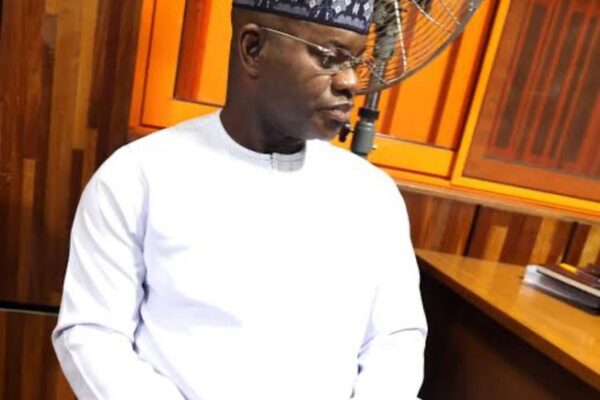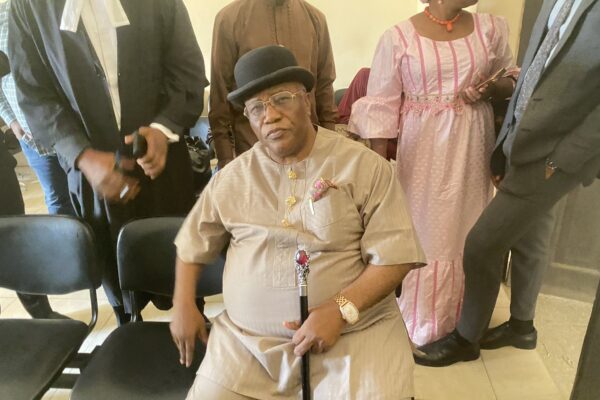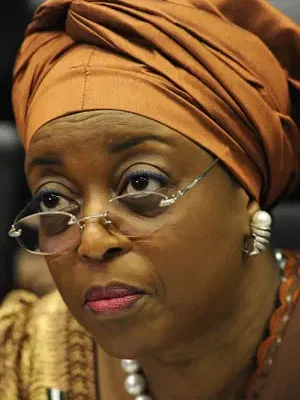The trial of former Kogi State Governor, Yahaya Adoza Bello, before Justice Emeka Nwite of the Federal High Court, Maitama, Abuja, continued on Thursday, January 29, 2026, with the continuation of testimony by Prosecution Witness Seven, PW7, Olomotane Egoro, a compliance officer with Access Bank. Bello is being prosecuted by the Economic and Financial Crimes Commission, EFCC, on a 19-count charge bordering on money laundering to the tune of ₦80,246,470,088.88 (Eighty Billion, Two Hundred and Forty-Six Million, Four Hundred and Seventy Thousand and Eighty-Nine Naira, Eighty-Eight Kobo). Led in evidence by prosecution counsel, Kemi Pinheiro, SAN, Egoro gave a detailed breakdown of financial transactions involving the accounts of Fazab Business Enterprise and E-traders International Limited, which allegedly received funds traced to Kogi State local government councils. After reminding the witness that he was still on oath, Pinheiro applied that Exhibit 33(8), the statement of account of Fazab Business Enterprise be shown to the witness. He drew his attention to inflows recorded on May 6, 2022, and May 9, 2022. Responding, Egoro told the court that on May 6, 2022, there were 11 inflows into the Fazab Business Enterprise account. He confirmed that the inflows came from different local government councils in Kogi State, including Yagba East, Yala, Ida and Okene. On the transactions of May 9, 2022, the witness stated that there were three transactions, comprising two inflows. When asked to confirm whether the inflows originated from Ibaji and Dekina Local Government Areas, Egoro answered in the affirmative, saying, “Yes, my Lord, I can confirm it came from the two local governments.” In summation, the witness told the court that the total inflow on May 6, 2022, amounted to ₦103,375,059.73, while the two inflows on May 9, 2022, totalled ₦14,563,702.56, bringing the cumulative sum to ₦117,938,762.29. Pinheiro further drew the witness’s attention to cash withdrawals that followed the inflows. Asked to identify the individual who made a ₦10 million cash withdrawal from the account, Egoro replied, “My Lord, it is Yakubu Siyaka A.” He confirmed that Yakubu Siyaka A. made cash withdrawals on several dates, namely May 9, 10, 11, 13, 16, 17, 18, 19, 20, 23, 24 and 26, 2022. In total, the witness said the cash withdrawals made by Yakubu Siyaka A. between May 9 and May 26, 2022, amounted to ₦116,600,000. When asked whether, in view of his testimony, almost the entire inflow of ₦117,938,762.29 from the local governments in May 2022 was withdrawn in cash, Egoro answered, “Yes, my Lord.” The witness further told the court that by May 31, 2022, only a balance of about N1,00, 289,41 (One million, Two hundred and Eighty-nine Naira Forty-one kobo) remained in the Fazab account. Turning to June and July 2022, Egoro testified that there were consistent inflows from various Kogi State local governments. He stated that the total inflow for June 2022 was ₦108,793,086.69, while July 2022 recorded inflows of ₦141,718,056.30, bringing the total inflow for both months to ₦250,511,142.99. He confirmed that during the same period, Yakubu Siyaka A. continued to make cash withdrawals from the account. According to him, the total cash withdrawals in June and July 2022 amounted to ₦198,900,000. When asked if almost ₦200 million was withdrawn in cash from the inflows of the two months, the witness responded, “Yes, my Lord, that’s correct.” Egoro further testified that the pattern of inflows from Kogi State local governments and corresponding cash withdrawals persisted in August and September 2022. He also confirmed that similar credit entries and withdrawal patterns were observed in October, November and December 2022.









